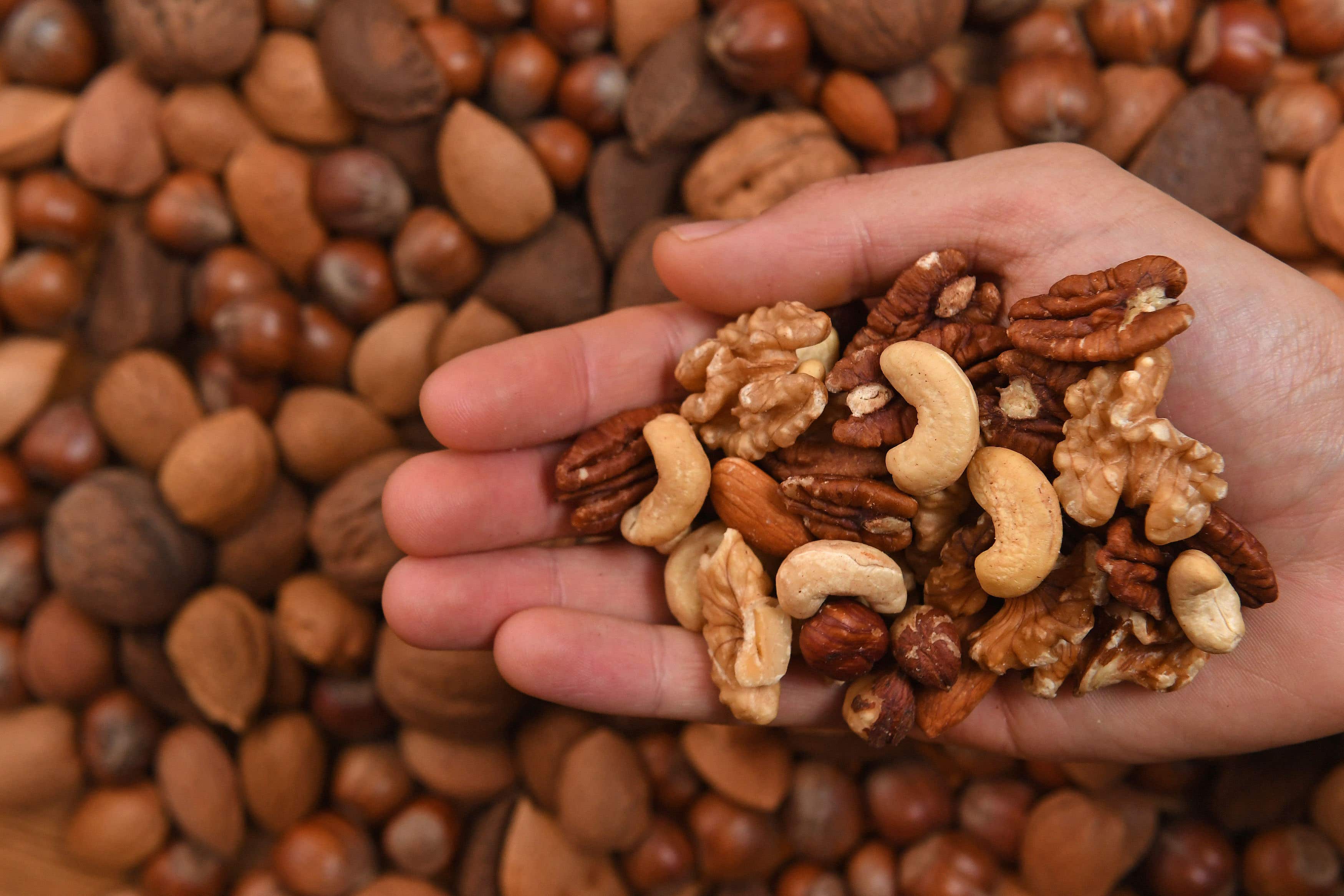Mediterranean diet ‘linked to improved cancer treatment response’
Experts believe research findings indicate that cancer patients could potentially be given lifesaving dietary advice.

Your support helps us to tell the story
From reproductive rights to climate change to Big Tech, The Independent is on the ground when the story is developing. Whether it's investigating the financials of Elon Musk's pro-Trump PAC or producing our latest documentary, 'The A Word', which shines a light on the American women fighting for reproductive rights, we know how important it is to parse out the facts from the messaging.
At such a critical moment in US history, we need reporters on the ground. Your donation allows us to keep sending journalists to speak to both sides of the story.
The Independent is trusted by Americans across the entire political spectrum. And unlike many other quality news outlets, we choose not to lock Americans out of our reporting and analysis with paywalls. We believe quality journalism should be available to everyone, paid for by those who can afford it.
Your support makes all the difference.Patients who eat a Mediterranean diet, rich in whole grains, nuts, fish and vegetables, may have an improved response to treatment for melanoma, a serious form of skin cancer.
Adopting the diet which includes foods rich in fibre, unsaturated fat, antioxidants and polyphenols, was positively associated with the person’s response to a treatment called immune checkpoint blockade (ICB), researchers say.
ICB is a relatively new and highly successful treatment against severe cancers used in immunotherapy to boost the immune system.
These drugs cause the immune system to recognise, clear and destroy the cancer cells.
I believe all cancer patients should now be given potentially lifesaving dietary advice such as increasing plant diversity, reducing junk food and adding fermented foods before starting therapies
Experts believe the findings indicate that cancer patients could potentially be given lifesaving dietary advice.
Professor Tim Spector, co-lead of the study from King’s College London, said: “The connection between the diet, gut microbes and helping the immune system fight cancer is one of the most exciting areas of medical research.
“Our two publications clearly show the importance of a gut friendly diet on improving your chances of surviving a cancer.”
He added: “Medical practice is often falling behind the latest finding on diet and gut microbes, but I believe all cancer patients should now be given potentially lifesaving dietary advice such as increasing plant diversity, reducing junk food and adding fermented foods before starting therapies.”
Researchers found that diet appears to improve the effectiveness and tolerability of ICB.
They suggest that a key potential mechanism underlying this association between diet and immunotherapy response is the gut microbiome – the community of different bacteria that lives in our gut.
Last year, the group led by co-author Karla Lee and colleagues from King’s College showed that the composition of the gut microbiome at the start of treatment was a major factor in a patient’s response to this type of cancer treatment.
The new study looked at the dietary habits of 91 patients with advanced melanoma.
They were all treated with checkpoint inhibitors and followed for 12 months. And scans were used to measure the effect of the medication.
Dr Veronique Bataille, a melanoma expert at King’s College London who coordinated the trial, said: “Immunotherapy has revolutionised the treatment of different types of advanced cancer.
“But not all patients respond to immunotherapy.
“Our study shows that dietary habits are likely to play a role in improving the treatment outcomes and patient survival.”
Researchers at King’s College London together with scientists at the Netherlands’ University Medical Center Groningen (UMCG), supported by the Seerave Foundation, revealed the results in JAMA Oncology.